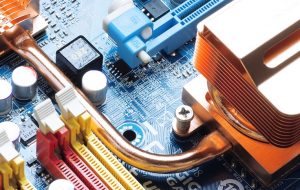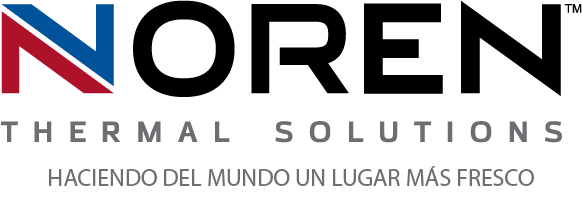 Since the first heat exchanger was created and implemented for industrial use, the principles behind it involved managing electrical waste heat in a more efficient and manageable method than more conventional solutions. Until then, keeping electrical enclosures cooled with air conditioners, air compressors, or similar solutions was the only way for companies to prevent those enclosures from overheating. However, using more natural methods to keep electrical waste heat from accumulating, heat exchangers made electrical cooling much more efficient. As a result, other forms of technology were able to advance even further, without being held back by traditional thermal management constraints.
Since the first heat exchanger was created and implemented for industrial use, the principles behind it involved managing electrical waste heat in a more efficient and manageable method than more conventional solutions. Until then, keeping electrical enclosures cooled with air conditioners, air compressors, or similar solutions was the only way for companies to prevent those enclosures from overheating. However, using more natural methods to keep electrical waste heat from accumulating, heat exchangers made electrical cooling much more efficient. As a result, other forms of technology were able to advance even further, without being held back by traditional thermal management constraints.
The automation of most industries
Automated technology has proven one of the most impactful technological advancements over recent years. From faster and more automated software solutions for administration purposes, to automated machinery and equipment for on-floor manufacturing processes, automation has transformed several industries, and in many different ways. For this to be possible, however, technology designers and the companies that use their solutions needed a thermal management solution that could meet the need for high-performance, cost-effective, and nearly automated electrical cooling. With heat exchangers, which utilize cooling fluid to continuously absorb and transfer waste heat, instituting nearly automated thermal management became possible.
The future of healthcare tech solutions
Automation has been a boon to companies in nearly every industry, but the advantages of more efficient and eco-friendly thermal management have had an even greater impact in industries such as healthcare technology. The need for faster, more reliable, and more efficient technologies is universal to most industries, but the ability to conserve resources while improving technological performance and safety is especially important for healthcare tech solutions. For example, the cooling fluids that heat exchangers typically use are eco-friendly and non-hazardous, such as water, so there’s no risk of exposure to patients when the technology is used.
The growth of consumer technologies
Many of the qualities of heat exchangers that make them so beneficial to industries also make them highly preferable for the technologies that consumers use on a daily basis. From powerful desktop and laptop computers to cellphones and other wearable technology devices, electrical cooling is paramount to their operations. With modern heat exchangers, technology designers and companies can utilize high-performance cooling technologies that can fit comfortably into increasingly smaller designs, yet still provide optimal cooing results on a continuous basis. For more information about how heat exchangers have contributed to technology’s advancement, call Noren Thermal Solutions in Taylor, TX, at 866-936-6736.







